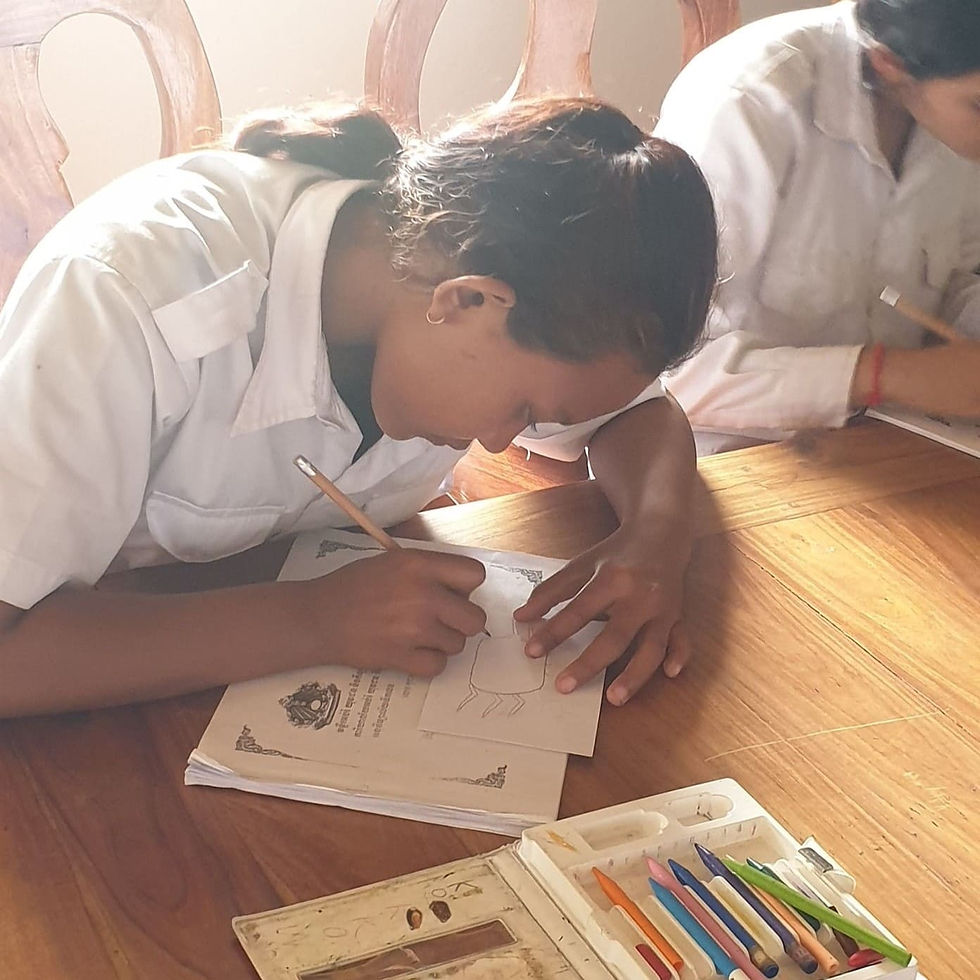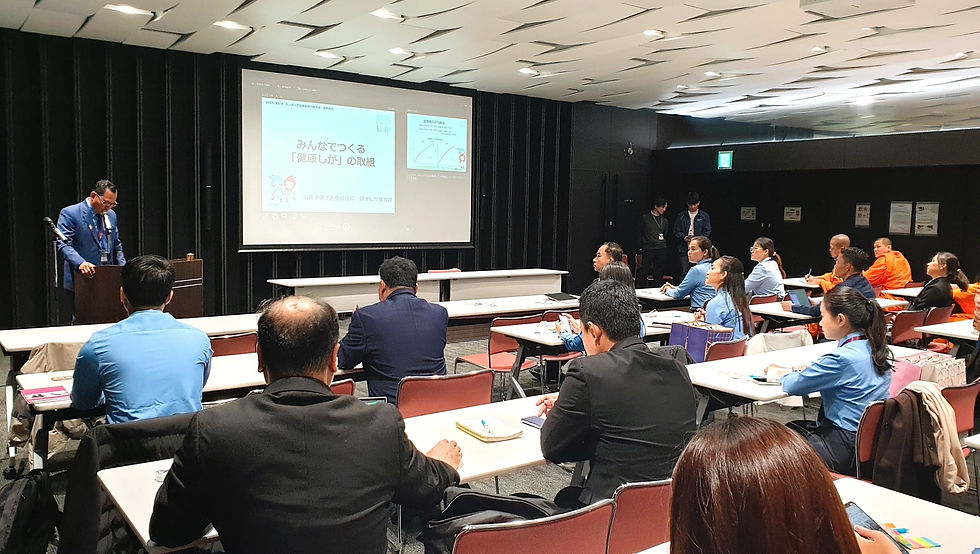
Blue Bird Education Cambodia
Activities 2025
★ The latest article will be listed below.




March (1)
BBE had an educational & financial support program for children in Thpong, Kampong Speu. This year the students who can be supported have increased up to 13 in this region.
They tried their hand at paper crafts, something they are not usually familiar with. As the Khmer Ney Year was is coming up, they a handmade card with a snake and flower motif. The highlight of the program was to create symmetrical flower shapes from folding and cutting colored paper.
They were very happy with small improvements they made throughout the program. We believe that there is value in the accumulation of these small improvements.




March (2)
The Royal School of Administration had another global program in South Korea. This was a little different from the usual administrative study tours, as it focused on the communications and IT field this time.
In the program, BBE assisted to coordinate a Cambodian officials’ visit to Seoul National University of Science and Technology, where the faculty members were very cooperative and shared valuable info with the delegation. We are sincerely grateful for their warm welcome.




April (1)
We had a program of creative writing with our foster children in Kratie.
First, children practiced how to explain and describe a given scene or picture accurately in detail. We need this skill for a smooth communication.
Once children became familiar with it, we asked them to add some imaginative descriptions to the given picture. They individually practiced it for a few times with different pictures.
Finally, we divided children into small groups and handed a very simple picture, in which not many things to describe, to each group and asked them to create a totally new story from that picture.
For some children this was a challenging experience. For some, they showed an ability to create a humorous conclusion or come up with beautiful poetic narrations.



Shimonoseki, Yamaguchi pref.

April (2)
BBE again assisted the overseas program of the Royal School Administration, which was held in Japan. This time, the program focused on educational administration, learning about school management and educational policies.
In Miyoshi city, Hiroshima, the city's Board of Education shared its initiatives and then we visited primary and secondary schools to see how these policies are being implemented.
In Hiroshima city, we visited the Eikei Prefectural University, which aims to develop talents who can design the future, and in Shimonoseki city, Yamaguchi, we were able to learn about the past and current state of special needs education systems in particular.
The delegation had opportunities to experience Japanese culture in between, making it a very fulfilling program.




July
We visited our foster children in Kampoing Speu under the cloudy weather of the rainy season. The activities this time were to practice brainstorming to organize the thoughts and to make a summer greeting card.
Brainstorming was used as a preparation for writing an essay. The theme of the essay was "What I like." Most of the foster children were new to our support this year, so we wanted to get to know them better, and because many of them are not used to writing, we chose an easy theme.
Regarding summer greetings, we first introduced the culture of sending letters to show consideration for others seasonally and on special occasions, and then we let them think about things that can represent particularly this time of year. It might be difficult to feel any big changes throughout the year in Cambodia, but this should be a good opportunity to see daily life from a deeper perspective.
When they had an idea, they drew it on a card. The children didn't seem to be used to drawing, but they drew with their own individuality.


The first craft uses a pulley-like structure where pulling one side raises the other.


August
Our foster children in Kratie challenged to make another crafts. When you pull the string, something pops out from the top, or the cover opens.
Once knowing the structure, we can understand the principles behind it, but we don't really use that kind of knowledge very often in our daily lives. This is even more true for the children in this rural area. However, if they are open to learning, they will find plenty of opportunities to apply what they have learned. This time again, the program is designed to provide them with the discovery.




November
The Royal School of Administration invited a medical group from Japan. The medical services provided in Kampong Speu and Kratie were done in collaboration with local medical personnel and UYFC.
BBE cooperated in recruiting young people who could work as interpreters and doctors' assistants, and they also worked hard on the whole preparations. We are really grateful for the sincere contribution of all participated personnel and volunteer youth.

to study their Well-being Shiga initiative.


Rock gardens...

to study their Well-being Shiga initiative.
December (1)
BBE, together with other non-profit orgs, cooperated Global Leadership and Innovation Training program, which was led by the Royal School of Administration, by inviting Cambodian government officials to Japan.
The delegation visited various cities in Nara, Shiga, Kyoto, and Osaka prefs to observe the local developments and administrative projects. Most importantly, they visited the Shiga Prefectural Government Hall to see their initiative for citizen, environmental and social health.


Starting by measuring the length with a ruler


December (2)
Our program at Thpong consisted of 1) reflecting on the past year and setting goals for the new year, and 2) making greeting cards using a simple pop-up mechanism where the folded part opens up when you open the card.
Although they weren't originally used to drawing with colors, it seems that as the program progressed, they gradually began to show their talent for drawing. Being able to freely use the colors they like and draw what they want is an important part of their individuality.
This time, we have more foster parents supporting us, and 4 new students have joined the program.




December (3)
In the Kratie program, too, we asked students to reflect on this year and think of their aspirations for next year. They also made message cards for all other individual foster children who participated.
The main part of the program was crafting with clay. Craft clay is still difficult to find in Cambodia, and this was the first time we had a program using clay.
Some children seemed to have difficulty coming up with ideas for what shape to make, but everyone enjoyed working on it until the final coloring, and many children showed artistic talents they hadn't shown before. Creating shapes from clay differs from drawing.
